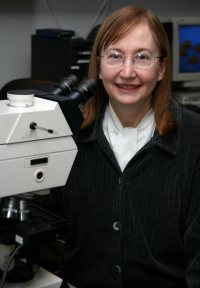Leela Play posted on Facebook Katrina Berne's notes on David Bell's talk in Seattle.
Dr Bell Seattle June 2015
June 14, 2015 at 9:30pm
Katrina has graciously shared her notes of Dr Bell's lecture.
David Bell, M.D.
June 6, 2015
Swedish Hospital, Seattle, WA
drdsbmd@gmail.com
Lyndonville, NY 1985: 202 became ill within a 2-year period in this small rural town
Dr Bell is retired from his medical practice and does speaking engagements and
consulting for SSDI cases
Please contact him if you know of places that might want him to lecture.
World Health Organization (WHO) uses the name ME.
Exertion Intolerance (the EI in SEID) – hallmark of this illness
exercise: increase of oxygen uptake; oxygen is used up crash
greater degree of EI indicates one's illness severity
evolution of chronic illnesses: CFS, FM, Lyme, chronic mono, FM, many others may
result from this process
Possible triggers:
1. Infection: post-infectious onset – maybe 75% of patients
2. neurologic injury, e.g., trauma
3. stress
Dubbo study – Australia
n = 101 patients with EBV mono
88 Ross River virus (RNA virus)
65 Q fever (rickettsial infection)
All were enrolled at the very beginning of illness.
94% of patients recovered.
after 1 year, 6% of each group met CFS criteria
conclusion: 6% of general population has underlying predisposition to
develop ME/CFS
Emotional and pre-morbid psychiatric status were NOT correlated with those who
became ill.
Infections that can initiate ME/CFS:
herpes mycoplasma
enterovirus parvovirus
hepatitis C Lyme disease
borreliosis others
Hepatitis C is treated with gamma interferon.
Gamma interferon can create the symptoms of ME/CFS.
IL-2 is used to treat cancer.
initiates symptoms suggestive of ME/CFS
cytokine response
getting over flu, other illness: cytokines decrease
ME/CFS: after initial infection, cytokine production continues
Mady Hornig studied 650 pts, measuring 51 immune factors including leptin.
Her findings suggest a hit and run virus.
"Fatigue is not present in CFS."
fatigue implies recovery
Inuits have 50 words for snow. We need better terms for what we call fatigue. The term fatigue is nonspecific.
OI: intolerance of being in an upright position
Decrease in blood flow to brain presyncope.
There is no test for blood flow to the brain.
POTS orthostatic hypotension
orthostatic narrowing of BP (difference between systolic and diastolic)
diastolic hypertension
delayed orthostatic hypotension
This test is "more accurate than tilt table test":
take blood pressure & pulse every 3-5 minutes
then stand upright and measure bp & pulse every 3-5 minutes
Pulse pressure decreases (difference between systolic & diastolic numbers at
40 minutes. "No patients are normal on this test."
SPECT scan slides
abnormal: decreased perfusion but changes from one time to the next
decreased blood flow in vertebral arteries doesn't show up on scans
Vasculopathy: something is wrong with blood vessels
reduced circulating blood volume*
reduced venous return to heart
reduced cardiac output
increased peripheral resistance
* reduced red blood cell mass
blood volume typically 80% of normal (normal = 5 liters; ME/CFS patients are "down one quart." Blood volume may be as low as 60% of normal in ME/CFS.
narrowing of blood vessels
hyperreactive in brain and gut [?}
heart, lungs, kidneys automatically get the most blood flow: . brain does not.
similar to septic shock, but chronic
IV saline helps but can decrease iron
If IV saline is given within 6 weeks of illness onset, Dr Bell thinks this can be reversed. After 6 months, it's irreversible.
Treatment Principles
1. comprehensive care
2. coping/packing – different for each patient
3. symptom discrimination: which Sx are most important to treat
4. sleep hygiene/sleep meds
5. "learn the tricks" of managing the illness
"Don't feel sorry for yourself."
sign in Dr. Bell's waiting room "Whining is permitted for 10 minutes only."
Problem with doctor visits: Patients don't get across to doctor how limited they are. Normal: 12 hours of activity per day
ME/CFS: far lower number of hours
Mitochondrial Energy Production
mitochondria convert oxygen to ATP
exercise: aerobic metabolism (good functioning) quickly converts to anaerobic
metabolism (not functioning well)
Staci Stevens' work: pts reached anaerobic threshold significantly sooner on day 2
of treadmill test – very significant
This is unheard of in normals or those with other illnesses.
The key to understanding this illness:
What causes PEM? Probably mitochondrial deficit. Reversal after rest.
Mitochondrial oxygen maintains aerobic metabolism
Treatment of sleep disorder: 20 mg melatonin 1 hour before bedtime to initiate sleep.
Melatonin can be used along with benzodiazepines or ambien.
Benzos are not addicting in ME/CFS.
occasional Benadryl (diphenhydramine) is okay.
Increased oxygen uptake
excess free radicals (SOD, catalase, glutathione
impaired mitochondrial function
impaired immune response
vasoconstriction/vasculopathy; orthostatic intolerance,
pre-syncope, pain, poor sleep
Q&A
There is abnormal release of oxygen from red blood cells.
Cognitive impairment is caused by OI, not loss of brain cells.
White punctate lesions often found on MRI may be meaningless.
Treatment of low blood volume
fludracortisone – somewhat effective
increase salt
increasing fluids not helpful
IV saline can be helpful but few docs will prescribe it.
Chronic pain differs among patients.
LDN can be helpful.
Fecal implants will be studied in the Ithaca studies.
Rituximab looks promising. Some very sick patients responded dramatically in initial study. Follow-up study is underway.
Pain may be related to reduced blood flow.
Mast trousers (body suit that is inflated, used in military) help circulate blood.
Mold allergy (as well as other allergies) increase cytokines and worsen OI. So does sensitivity to "dirty electricity."
Big overlap between Ehlers Danlos Syndrome (EDS) and ME/CFS. ~17% of ME/CFS pts have EDS as opposed to 4-5% of the general population. The problem is elasticity of tissues surrounding blood vessels.













